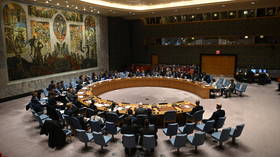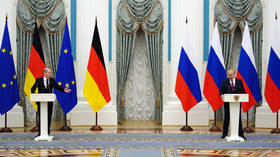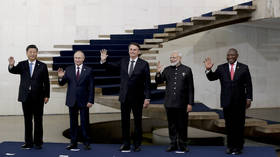Timofey Bordachev: How increasingly frenetic diplomatic maneuvering is reshaping the world order
Such trends are particularly evident in the behavior of Western countries, but most others are no exception
by Valdai Club Programme Director Timofey Bordachev

There is no doubt that the world is undergoing a major transformation. Perhaps the current changes are the most significant in the last few hundred years. This is all the more so, because never before in the history of international politics has it involved so many actors with different historical and cultural backgrounds. This means that we are not talking about another redistribution of power within a limited circle of states, but about a much broader phenomenon.
In practice, however, these sweeping changes have led to a highly paradoxical situation: Diplomacy is heavily influenced by tactical maneuvering rather than strategic considerations. This is particularly evident in Western behavior, but most others are no exception. Even the actions of powers such as China or Russia, which in many ways are genuine examples of diplomatic conservatism, show signs of contextual concerns. But what about small and medium-sized countries, especially those that have become known for their skillful tactics in making the most of ambiguous international situations?
In other words, it is not only the leading states, which are really the ones who will determine the composition of the new world order, but also the smaller opportunists who are now in a constant state of maneuvering.
In popular analysis, the capacity for continuous jostling for position is now generally regarded as an attribute of medium-sized states occupying an intermediate geopolitical position, but it is the large countries that are the true masters of this genre. Western Europe, despite its long-term commitment to transatlantic relations, is certainly in the lead. The major powers of the European Union, acting in their personal capacity or under the guise of submissive European institutions, are in a state of permanent maneuvering: In relations with China, Russia or the rest of the so-called world majority, in addition to constant bargaining in relations with their powerful patron, the US.
For the rest of the world, it creates the illusion that the EU can one day break away from Washington and sail on relatively independently. And for the Americans, it creates few additional concerns, but nothing that threatens their monopoly on power.
French President Emmanuel Macron's visit to Beijing in the first half of April was certainly an example of such posturing. The French leader sought in every way to reinforce the perception among his Chinese counterparts that continental Europe could act, at least tactically, as more than just a territorial base for US interests. This was partly due to the economic opportunities that make cooperation with the Western Europeans beneficial for Beijing and the Chinese economy. It is also due to the persistent Chinese belief that Germany and France are acting so hardline towards Russia precisely because they do not believe that a conflict with Moscow would have dramatic consequences.
A confrontation with China, which the EU states are being gently nudged towards by the UK and the US, would indeed be a suicidal economic decision for the bloc. Especially in the current not-so-pleasant state of the socio-economic systems of most of "old Europe." The reluctance of EU members to give up the benefits of cooperation with China was evident to all in Beijing during an earlier visit by German Chancellor Olaf Scholz.
Moreover, Beijing quite rationally believes that the conflict between the West and Russia is more fundamental for the EU than the confrontation between the US and China. Our Chinese friends are well aware of the history of relations between Russia and Western Europe, and they know that hostility is rooted in European bloc capitals. Despite some positive experiences with Russia in an era of its comparatively EU-friendly behavior, the major countries of the bloc have their grievances with Moscow, perhaps even more seriously than those of Japan, another American ally.
Russia is objectively and historically an adversary of Western Europe, which cannot be said of China, whose geopolitical position alone helps to ensure it’s not seen as a serious concern. Thus, the diplomatic entreaties of France – and the EU in general – will certainly continue to be very well received by our Chinese friends.
China maneuvers on everything – with the exception of the strategic partnership with Russia, the true nature of which is concealed from outside observers by the exclusive relationship of trust between our political leaders and the Chinese. In all other matters, Beijing promotes its long-term vision through decisions that may appear to be purely tactical. All the more so because, as in the case of the historic rapprochement between Iran and Saudi Arabia, all the major features of international life are now influenced by the success of Chinese diplomacy. This will continue as long as Beijing can remain above the fray in which the West and Moscow are directly involved over the unfortunate Ukraine.
The US has its own diplomatic schemes, and these, like Russia's, are very serious for global security simply by virtue of the volume of nuclear weapons at its disposal. By proclaiming a decisive battle with Russia and an equally implacable confrontation with Beijing, Washington is also attempting what enthusiastic observers call "a subtle diplomatic game." But while the Western Europeans are relying on their economic power and a certain charm as sovereign actors with a long history, Washington is plotting in a deliberately brutal spirit, trying to play power games and pit everyone around it against each other. It is, of course, less and less successful, but the resources it has accumulated over the past fifty years are far from exhausted.
For its part, Russia has shown diplomatic flexibility by stubbornly avoiding "burning bridges" with the West or damaging the integrity of the global economic system. It is also showing impressive tolerance towards those foreign partners who take into account American demands on the Russian issue, including even formally neutral countries which supply arms to Kiev. In fact, while the diplomatic dialogue between Moscow and NATO capitals has come to a complete halt, it's not by the will of the Russian side, which stresses that it is always open to resuming talks.
In this context, the pertinent question for international political scientists may be whether the general diplomatic jostling is simply part of military action that is increasingly proliferating on a global scale, or whether it’s replacing previous practices. We can assume that both are happening at the same time – much to the chagrin of those of us who still believe that peace can be built on the basis responsible calculations.
https://www.rt.com/russia/575484-increasingly-frenetic-diplomatic-maneuvering/




0 Comments:
Post a Comment
Subscribe to Post Comments [Atom]
<< Home